The Top 30 SEO or Search Engine Optimization Tips For Law Firms
INTRODUCTION
As a law firm owner, you always desire to provide value to your customers and make profits through your services. To achieve this, your business must have online visibility and a global reach. Online marketing is a sure way to do this. Most customers prefer to search online for businesses that will meet their needs before patronizing them physically. If you neglect online marketing, you will lose a large chunk of potential customers.
A lot of content is posted online but not all of them are visible online. As you post content online, you must ensure that they are intelligently crafted so that your customers can find them. This can be achieved by implementing a smart SEO strategy as a company.
SEO (Search Engine Optimization) refers to everything done to make your website content visible on search engines like Google or Bing. There are several rules you should apply for your content to rank higher on search engines like Google. This post will show you the top 30 SEO tips that will expand the customer base and profit potential of your law firm.
Let’s dive into these tips.
TIP #1 - PERFORM KEYWORD RESEARCH
Keywords are important tools that help search engines understand the central theme of your content. Keywords are simply what your customers are searching for online. As a law firm owner, you must think like a customer when creating your content. With what words will a customer look for the service you offer when searching online? The likely phrases or words the customer will use are keywords that can help them find you online. Find those keywords and include them in your content when writing.
You can find useful keywords by typing out the topic you’ll like to write on a search engine like Google. When you do this, Google will suggest more keywords that customers search for on that same topic. Take note of those keywords and keep them for later use.
TIP #2 - LEARN WHAT WORKS FOR THE KEYWORDS
For your content to be visible online, you need to use the right, less-competitive keywords, not just any keyword. In order to do this, you can perform research on your competitor’s content that is visible online. Check how they framed their keywords and you will find useful tips that will help your content from there.
You can improve your keyword analysis with keyword research tools like SEMrush or Ubersuggest. These tools give you information on what keywords to use to have the best SEO results. Engage these tools to project your online content more and boost your profits with the power of keywords.
As you use keywords for your business website, make sure to fit them into your content naturally. Don’t stuff them all around your content, search engines detest keyword stuffing.
TIP #3 - USE LONG-TAIL KEYWORDS
Another tip on keywords is to use Long-tail keywords. Long-tail keywords contain three or more words. Long-tail keywords are more creative, have less competition and help your content to stand out from other businesses who write the same thing as you. After your keyword research, come up with a less popular long-tail keyword that will help the search engine find your content faster and rank them higher.
TIP #4 - PERFORM SERP (Search Engine Result Pages) RESEARCH
SERP means Search Engine Result Page. To perform SERP research, search for a keyword you will like to write about on a search engine. Pay careful attention to the first page of the search engine result for that keyword. To make your content visible online, you need to know what your competitors did to appear on the first page of the search engine results. As you read through their content, note similar steps they took concerning SEO and follow the same too. You will have your law firm ranking on the search engine’s first page in no time.
TIP #5 - CHECK YOUR META ROBOTS TAG
The Meta Robots tag is an HTML code that will either allow a search engine to crawl through a website or not. When a search engine crawls through a website, it can find content to display on its result page. If your Meta Robot tag disallows this, your business advertisement will not be visible online. For your content to attract more customers, make sure your meta robots tag allows Google and other search engines to crawl your website.
TIP #6 - USE SHORT AND CONCISE URLs
When writing the URL for your page, make sure they are concise. Google algorithm does not favor longer URLs. Also, remember to fit your keyword into your URL. This will help the search engine understand what your content is about in quick time and display it online.
TIP #7 - ADD RELEVANT SCHEMA MARKUP
Schema markup is microdata you can attach to your page. It provides information about the theme of your website content that will be displayed on the search engine. It helps to define the context of your write up to the search engine faster and this helps your content to have a high ranking online. Before setting the Schema markup for a page, make sure it is HTTPS - SSL secure.
TIP #8 - MAKE SURE THE TITLE IS AT OPTIMAL LENGTH
When writing content on your business website, the length of the title should be between 50 and 60 characters. This is the optimal title length that favors the search engine Algorithm. If your title is longer, it may not appear in its entirety on Google or any other search engine. This will leave your online readers clueless about what your content is about and turn them away from your website.
TIP #9 - WRITE A META DESCRIPTION THAT WORKS
A meta description is a short descriptive excerpt from your post that is displayed along with your content title on the search engine. Meta descriptions help to give your readers an idea of what your post is about and convinces them to read the rest of your content. Google can pick any part of your content that matches user intent more as a meta description.
This is why you should write a compelling meta description to appear in Google’s search results. If your meta description is convincing enough, it is what will help lead more customers to your business website.
TIP #10 - AVOID REPEATING THE TITLES OF YOUR WEB PAGES
It is essential to create a unique page title for each page of your website. Even if your content is similar, ensure you name them with different titles. Content duplication will draw back your SEO potentials, and it should be avoided.
TIP #11 - INSERT YOUR KEYWORD IN YOUR TITLES
To improve your SEO strategy, it is advisable to use the exact phrase of your keyword in the title and subheadings of your page. You can also use a related word or synonym of your keyword in your title and subheadings. This will help you avoid keyword stuffing.
TIP #12 - USE INTERNAL LINKS THROUGHOUT YOUR WEBSITE
Internal links are links that refer your customers from one post on your website to another relevant or similar post on your website. Internal links help search engines like Google to have a better grasp of your content and attach a particular theme to them. In addition, internal links will lead your customers to more information they might not know exist on your website. Consequently, your brand reputation and trust will be greatly increased.
TIP #13 - USE H2 TAGS WHENEVER POSSIBLE
As much as possible, put all your subheadings in H2 text size. Using H2 text for your subheadings help your readers flow more with your articles. It also helps Google crawl your website better. Your content readability will determine your bounce rate. Bounce rate is the rate at which users leave your site almost immediately after getting on your site. A high bounce rate reduces your ranking on search engines.
TIP #14 - INSTALL SEO PLUGINS ON YOUR WEBSITE
Many people find it difficult to keep up with SEO rules or even remember them. To avoid this, there are SEO plugins you should install on your website. SEO plugins assess your post based on current SEO rules and show you areas that need improvement in your post in terms of SEO. SEO plugins also help to improve your content readability and its chances to rank on the search engine. To help your SEO compliance, install YoastSEO as an SEO plugin and BrowSEO to help evaluate SEO impact.
TIP #15 - DESCRIBE THE IMAGES OF YOUR CONTENT WITH ALT TEXT (Alternative Text)
An alternative text is a short description of an image uploaded along with your content. Adding an alt text helps to give the search engine another pathway to understand your content theme. Through describing your images, your theme and context become very clear to the search engine. When writing alt text for an image, input keywords in it and write a perfect caption that will give the image a clear-cut definition.
TIP #16 - CHECK YOUR PAGE SPEED
Your business site speed is different from its page speed. The site speed is the overall website loading speed while the page speed is the time it takes a page on your website to load. When your page takes a long time to load, your customers are forced to go to other website pages that load faster. You can optimize your page speed by using caching plugins and compressing the images or media content you upload in your content. Moreover, the choice of your website’s hosting platform also affects your page and site speed, so be sure to choose a trusted hosting platform for your business website.
TIP #17 - WRITE LONGFORM CONTENT
Google Algorithm favors long-form content over short-form content. Also, your readers will appreciate comprehensive and valuable content that provides them with adequate information about your business or the service you render. Break your post into different headings and paragraphs that will make your post more readable. Don’t compromise quality for quantity in your content.
TIP #18 - DESIGN YOUR PAGES FOR HUMANS
To keep your readers glued to your content, you must make your website’s pages user-friendly and attractive. Incorporate pictures, charts and graphic visualizations that will fascinate your customers all the more. Address your customers personally in your posts, this will strike an emotional chord that will make them more attached to your business. When you write long-form content, break your post into short paragraphs to aid user readability. Carry your readers along always.
TIP #19 - KEEP YOUR CONTENT UP-TO-DATE
As times goes on your content will get outdated if you don’t update them. The knowledge in your business field will keep evolving, this is why you should update your content regularly. At least once a year, update your website content. Remove outdated information and replace it with the correct one. Google ranks more updated content than outdated ones.
TIP #20 - USE OUTBOUND LINKS
To help your post rank on search engines, link it to other credible business owners who perform similar services with you. This will open up opportunities for them to link back to your post on their website and boost your SEO profile with Google and other search engines.
TIP #21 - CHECK THAT YOUR DETAILS ARE CORRECT EVERYWHERE
The name, address and contact information of your law firm must be the same all through the internet. To do this, visit old directories and update them if there are any inconsistencies. Having consistent information on the internet will help clients find accurate information about your business and improve your SEO, as search engines like Google highly abhor inconsistencies.
TIP #22 - USE LSI KEYWORDS
LSI means latent semantic indexing. LSI seeks to make use of semantics to help your business website rank higher on Google. LSI keywords are keywords related to your target keyword. Using LSI keywords increases your SERP ranking because Google or any other search engine recognizes the related keywords and automatically gets the message you are trying to pass across with your content You can find LSI keywords from LSI graph.
TIP #23 - ACQUIRE MORE BACKLINKS IN YOUR POST
Backlinks are links that direct other customers from another business owner’s website to yours. This will only happen when another business owner or writer intentionally refers to a part of your content on their website. Other business owners will only backlink your website when they find your post valuable enough to cite it in their content. This is why your content must be robust and comprehensive. When writing on your website, give it your best shot.
Backlinks are very important in SEO. A high number of backlinks tell Google or other search engines that your post is valuable and should be ranked as high as possible in its SERP.
TIP #24 -WRITE WITH USER INTENT IN MIND
User intent refers to what your users are searching for about your business. When you write, let your content revolve around user intent. This is very key in whether your posts will be visible online at all. You can find out user intent by performing keyword research to see what keywords your customers use when they search about your business. You can also carry out a survey from your customers directly asking them what they wish to know about your law firm. This will help you know what to write about.
TIP #25 - PUT YOUR MOST IMPORTANT KEYWORDS IN THE INTRO
In your introduction, include your cornerstone keyword naturally as you write. This will help catch the attention of your customers who have been searching for that keyword online. This also improves your SEO potential.
TIP #26 - USE EASY TO READ LANGUAGE
As you try to market your law firm online, what you want is more turn-over of customers to your website, not the opposite. To achieve this, write your content in easy to understand language. Avoid professional jargon that your customers can’t relate with, keep it simple. Ensure your user-readability is top-notch.
TIP #27 - CHECK YOUR ROBOTS.TXT FILE
The robot.txt file is similar to the meta robots tag; it restricts or allows search engines to crawl a page on your website. Check to see that your robot.txt file is not disallowing crawling on your website. Moreover, all URLs you want to rank on a search engine must be on your site map.
TIP #28 - USE MODIFIERS THROUGHOUT TITLES AND KEYWORDS
When writing your title and content, input qualifying adverbs that will spice up your content like top, best etc. For example, a title like “Top 30 SEO tips for law firm” will do better than “SEO tips for business owners” on search engine results.
TIP #29 - ORGANIZE YOUR CONTENT
Build your content systematically such that it is easy for a reader to follow it. Let one part of your content lead to the other till you reach the apex of the message you’re passing across. Content organization helps with your SEO and converting prospective customers to your law firm.
TIP #30 - REMAIN UP TO DATE ON SEARCH ENGINE ALGORITHM CHANGES
Search engines like Google always update their SEO Algorithm from time to time. Always update yourself with SEO Algorithm changes to keep your website content in shape to rank high on search engines. The world of SEO is constantly changing.
CONCLUSION
Even though the world of SEO is very broad and revolving, the 30 SEO tips above will keep your website content always visible to more prospective customers online. Install an SEO plugin to help you monitor your pages if they are SEO worthy, update your posts from time and you will be ahead of the search engine algorithm.
Discover How We Can Help You to Attract New Clients, Increase Referrals and Generate Unlimited Leads To Your Law Firm Website
Discover What The Business Limiting Issues Are With Your Website and Overall Marketing Strategy That Could Be Keeping Your Law Firm From Achieving Its Optimal Results. Get A Your FREE Digital Marketing Blueprint With Your FREE Consultation.








